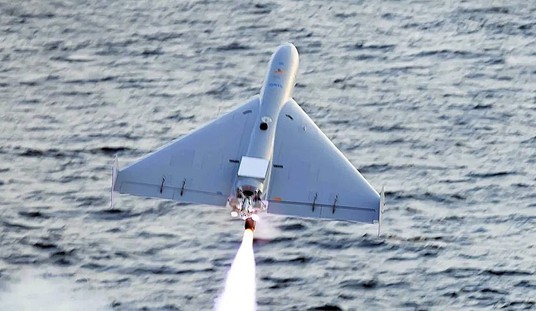Does it really come as a surprise to anyone that al-Qaeda targets train and subway systems? As far back as seven years ago, AQ killed almost 200 people in Madrid, and the next year killed dozens in London by attacking public rail systems. Now, however, Senator Chuck Schumer wants Homeland Security to step up screening at rail stations with a “do not ride” list after discovering that Osama bin Laden had planned to attack our train systems:
Sen. Charles Schumer is calling for better rail security now that the raid on Osama bin Laden’s compound has turned upplans to attack trains in the U.S.
“Anyone, even a member of al-Qaida could purchase a train ticket and board an Amtrak train without so much as a question asked,” Schumer said. “So that’s why I’m calling for the creation of an Amtrak no ride list. That would take the secure flight program and apply it to Amtrak trains.”
Schumer said Sunday that he will push for the creation of a “do not ride” list for Amtrak. The list would be similar to the no-fly list that keeps those suspected of terrorism from flying into or out of the United States.
Mitch Berg tartly questions the need:
Of course, except for the tiny fragment of America living in the congested mid-Atlantic strip, Amtrak is largely on Amerca’s “do not ride” list. Amtrak is an epic money pit.
In vast swathes of the US, terrorists would be the only person on an Amtrak train.
A recent study of Amtrak performance by Pew suggests that Schumer could make the process easier by eliminating unprofitable Amtrak routes, which would be just about all of them (via The Blaze):
Forty-one of Amtrak’s 44 routes lost money in 2008 with losses ranging from nearly $5 to $462 per passenger depending upon the line, according to analysis by Pew’s Subsidyscope.
The line with the highest per passenger subsidy—the Sunset Limited, which runs from New Orleans to Los Angeles—carried almost 72,000 passengers last year. The California Zephyr, which runs from Chicago to San Francisco, had the second-highest per passenger subsidy of $193 and carried nearly 353,000 passengers in 2008. Pew’s analysis indicates that the average loss per passenger on all 44 of Amtrak’s lines was $32, about four times what the loss would be using Amtrak’s figures: only $8 per passenger. (Amtrak uses a different method for calculating route performance).
The Northeast Corridor has the highest passenger volume of any Amtrak route, carrying nearly 10.9 million people in 2008. The corridor’s high-speed Acela Express made a profit of about $41 per passenger. But the more heavily utilized Northeast Regional, with more than twice as many riders as the Acela, lost almost $5 per passenger.
Actually, we could get the money for enhanced security by cutting off those subsidies. It’s a win-win!
No one after 9/11 should have doubted that we needed to increase rail security — and certainly not after Madrid and London. It didn’t take a raid to know that AQ would eventually try to strike American rail in one form or another; the only question was whether we could beat them to the punch and prevent it. That’s why this statement made by President Obama was so fundamentally unserious:
What we need, then, is a smart transportation system equal to the needs of the 21st century. A system that reduces travel times and increases mobility. A system that reduces congestion and boosts productivity. A system that reduces destructive emissions and creates jobs.
What we’re talking about is a vision for high-speed rail in America. Imagine boarding a train in the center of a city. No racing to an airport and across a terminal, no delays, no sitting on the tarmac, no lost luggage, no taking off your shoes.
We need better security on trains, not less security — but we mainly need to stop wasting money on lines that are better served by commercial air so that we can focus security better and become more effective.








Join the conversation as a VIP Member